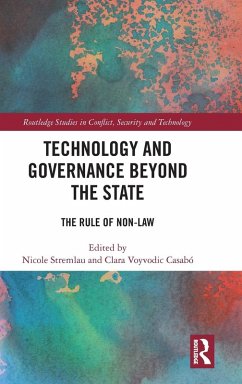This book explores how information and communications technologies are adapted, governed, and reinterpreted in areas where the state has limited reach.
The governance and regulation of new technologies, from social media to AI, has never seemed more urgent. Efforts to harness the potential benefits, to encourage innovation and novel applications, yet restrain the known and unknown harmful aspects of these technologies, have posed unprecedented challenges. This book brings together an eclectic collection of cases from around the world - from the favelas in Brazil to the border regions of Ethiopia and Somalia and to markets in Thailand - to tease out the broader arguments and logics about how diverse enabling environments for technology and innovation may evolve and the wide range of public authorities that may be involved in providing governance and security for such innovation, beyond the state. The term 'the rule of non-law' refers to the breadth and array of rules, norms, and systems that enable novel technological assemblages and uses. By looking at technologies and the rule of non-law in areas that are often seen as marginal or at the peripheries (from a profit and business perspective), this book reflects new insights back to more Western-dominated mainstream debates about law, technology, and innovation.
This book will be of great interest to students of Socio-Legal Studies, Science and Technology Studies, Critical Security Studies, and International Relations.
The governance and regulation of new technologies, from social media to AI, has never seemed more urgent. Efforts to harness the potential benefits, to encourage innovation and novel applications, yet restrain the known and unknown harmful aspects of these technologies, have posed unprecedented challenges. This book brings together an eclectic collection of cases from around the world - from the favelas in Brazil to the border regions of Ethiopia and Somalia and to markets in Thailand - to tease out the broader arguments and logics about how diverse enabling environments for technology and innovation may evolve and the wide range of public authorities that may be involved in providing governance and security for such innovation, beyond the state. The term 'the rule of non-law' refers to the breadth and array of rules, norms, and systems that enable novel technological assemblages and uses. By looking at technologies and the rule of non-law in areas that are often seen as marginal or at the peripheries (from a profit and business perspective), this book reflects new insights back to more Western-dominated mainstream debates about law, technology, and innovation.
This book will be of great interest to students of Socio-Legal Studies, Science and Technology Studies, Critical Security Studies, and International Relations.








